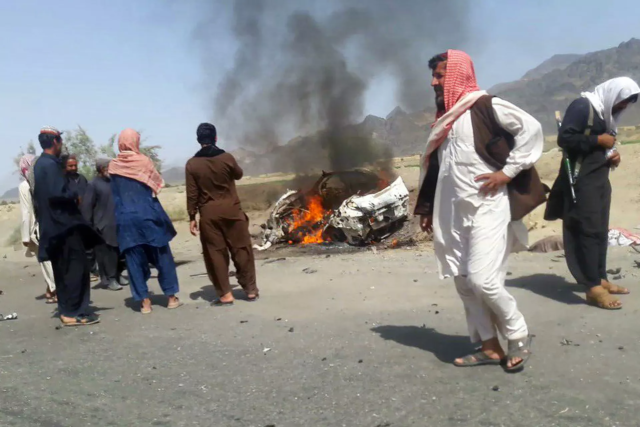
One day after a Taliban suicide bomber killed 14 Nepalese security guards on Tuesday, Taliban fighters ambushed dozens of cars and buses traveling on a main road in the Helmand province in southern Afghanistan. The road connects the city of Kandahar to the western province of Herat. Witnesses said the attackers wore Afghan National Army Uniforms when they forced people out of their vehicles at gunpoint, marking this the third mass kidnapping this month, part of the Taliban’s new increased ‘summer offensive’.
The insurgents initially abducted about 60 people, later releasing all but 27 who were suspected of government employ; an additional 21 were freed after the passengers were judged by their captors to be “innocent.” Taliban spokesman, Qari Yousuf Ahmadi, made an official statement that the group is targeting Afghan officials, and those found working for the Kabul government would be subject to “Islamic justice.” It is unknown where the remaining 6 people are being held. Afghanistan’s interim spokesman, Omar Zwak, said that authorities believe they are in a Taliban stronghold in Helmand’s Marja district. The Taliban took control over Khan Neshin in mid-May—the 5th of Helmand’s 14 regions to fall into the jihadists’ hands despite the Obama administration and Kabul government’s efforts to quell its resurgence.
The White House has announced a plan for U.S. forces to play a more “proactive role” in providing advice, assistance, and training to Afghan forces. The plan gives more authority to the U.S. military to conduct additional airstrikes, which are supposed to help Afghan forces “be more effective in the battlefield,” and reduce the need for more American troops on the ground. The administration proposal to reduce the number of U.S. soldiers in Afghanistan from 9,800 to 5,500 by the end of 2016, although increased Taliban activity and effectiveness has caused some American military officers to suggest higher numbers.
President Obama announced last month that a U.S. drone strike in Pakistan had killed long time Taliban leader, Mullah Akhtar Mansour. The group quickly replaced him with Mullah Haibatullah Akhundzada, a religious extremist with no military experience, who has already been deemed a “compromise candidate.” The president said the drone strike that killed Mansour is not the beginning of increased U.S. involvement in the country, but rather that Mansour’s death was a milestone in attempts “to bring peace and prosperity to Afghanistan.”

